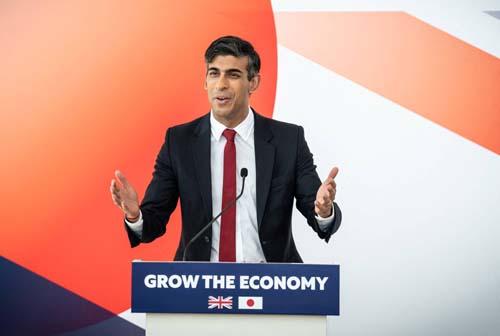
UK and Japan to boost defense and chips ties
London: Britain’s Rishi Sunak signed a new deal on defense cooperation with Japan as he met the country’s PM Fumio Kishida ahead of the G7 summit this week.
Dubbed the “Hiroshima Accord” by No. 10 Downing Street, the deal is aimed at boosting cooperation between the nation’s armed forces and launching a new “semiconductors partnership” to protect chip supply chains — a measure aimed at safeguarding Western supply of the crucial tech from China, which sees semiconductor-rich self-governing island Taiwan as its territory.
Semiconductors are used in everything from iPhones to missiles, but the COVID-19 pandemic exposed the world’s reliance on Chinese and Taiwanese manufacturers. The threat of war in Taiwan, home to TSMC, the world’s largest semiconductor company, has made Western governments even more desperate to shore up their supply chains.
The U.K. is expected to publish its semiconductor strategy Friday, while the agreement with Japan was unveiled Thursday as Sunak and Kishida met in Hiroshima. Sunak is in Japan for Friday’s G7 summit.
“I genuinely believe that the relationship between our two countries has never been stronger than it is today,” Sunak told his Japanese counterpart.
In a series of interviews with reporters on the plane to Japan, Prime Minister Sunak rejected calls from his predecessor Liz Truss to fast-track Taiwan into the Comprehensive and Progressive Agreement for Trans-Pacific Partnership (CPTPP) trading bloc.
In a speech on the island Wednesday, Truss had called for more action from the West to curb Chinese aggression. She also made the case for Taiwan to be allowed into the CPTPP bloc, a move that would anger Beijing.
Sunak said he was too “busy” to have been across the details of Truss’ speech. However, he said the U.K.’s approach “hasn’t changed.”
“It’s an approach that is completely aligned in substance and in language with all our allies,” Sunak said.
